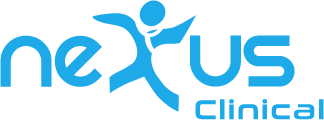
Paper Charting vs. EHR
- Written by Kiran Agate
- Salient points for switching from paper charts to EHR
Paper Charting vs. EHR
- Written by Kiran Agate
- Salient points for switching from paper charts to EHR

Abstract
When it comes to deciding between paper charts vs. Electronic Health Records, there are a few things that a practice must take into consideration. The reason that holds back practitioners is that EHR Solution are expensive and it is an extra expense for the medical practices. Another misconception is that EHR systems are complex and not user-friendly.
A comparison of the cost and efficiency of medical practices in both situations can provide clarity on this. Every practitioner would be interested to cut the expenses and improving efficiency. The key aspects to consider regarding cost and efficiency are as follows the time of the staff, supplies for paper charting, storage cost, and lost documents.
The key aspects to consider regarding cost and efficiency are as follows the time of the staff, supplies for paper charting, storage cost, and lost documents.
Time Benefits: Creating new charts and maintaining existing charts in Paper vs. EHR
The doctors need to store patient records and pull patient charts throughout the day. Here are the disadvantages of
paper charting:
- A lot of time is wasted finding old patient charts
- Patient intake for paper-based practice is a tedious process.
- Coordination between the front office, nurses, providers, and labs is very complicated with paper records.
- ICD-10 coding, filling up superbills, and creating CMS 1500 forms are time-consuming and error-prone
process.
EHR is a faster option once users learn their way around them. EHR can save time significantly in searching patient
records, and getting lab and imagery results. EHR comes with ICD-ready coding and billing features to make claim filing go faster. EHR saves time by reducing human errors like handwritten mistakes and misplaced files.
Eligibility Checks & Medicare Benefits
Federal regulations for reimbursement qualification require the use of an EHR System. With the latest version of MACRA and MIPS scoring, practices are evaluated on their use of EHR tools to facilitate more meaningful and successful interactions with patients. Paper records don’t even come close to being any comparison to EHR.
EHR systems were introduced with the incentive program for the providers.

Cost Benefits
Some practices consider EHR Software to be more expensive than their current paper charting mechanism.
Here are some of the expenses which impact paper-based practices:
- Cost of real estate to store paper charts
- Cost of supplies
- Seeing the reduced number of patients due to more time spent on patient intake and paper charting.
- Manpower required to manage paper documentation
The decision has to be long-term when adopting an EHR. Electronic charts are going to save your practice money by
speeding up workflows, reducing labor costs, increasing the number of accepted claims, and reducing operational costs.
Paper records will slow down the office as features such as Interoperability and Revenue Cycle Management become
electronic.
Security
Improper handling of protected health information is always a concern for paper-based practices. There can be serious consequences for this type of HIPAA violation. Here are the main security challenges that paper-based practices have.
- Paper charts are simply left in a place to be vulnerable
- Anyone in practice can access paper charts
EHR has built-in security measures like password protection and data encryption for better protection of your patient data, whereas a physical record simply is left in a place that needs extra measures to be taken by practice for its protection. With the EHR, the systems are a lot more protective from HIPAA violations than paper records will ever be. A few more points that enhance the security are listed here,
- Role/ User-based access
- Data encryption
- Audit trails
- Data backup after disasters
Conclusion
Our Unified Healthcare Solutions, Nexus EHR, and PM can help you give enhanced patient care, maximum revenues, and low administrative costs. Thus increasing the efficiency of your practice.





